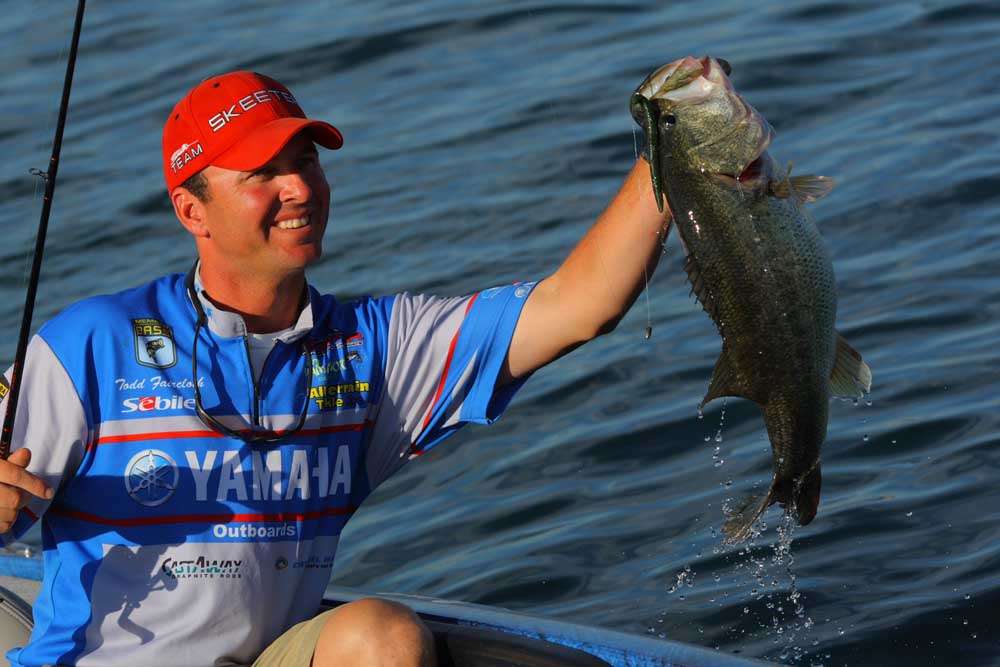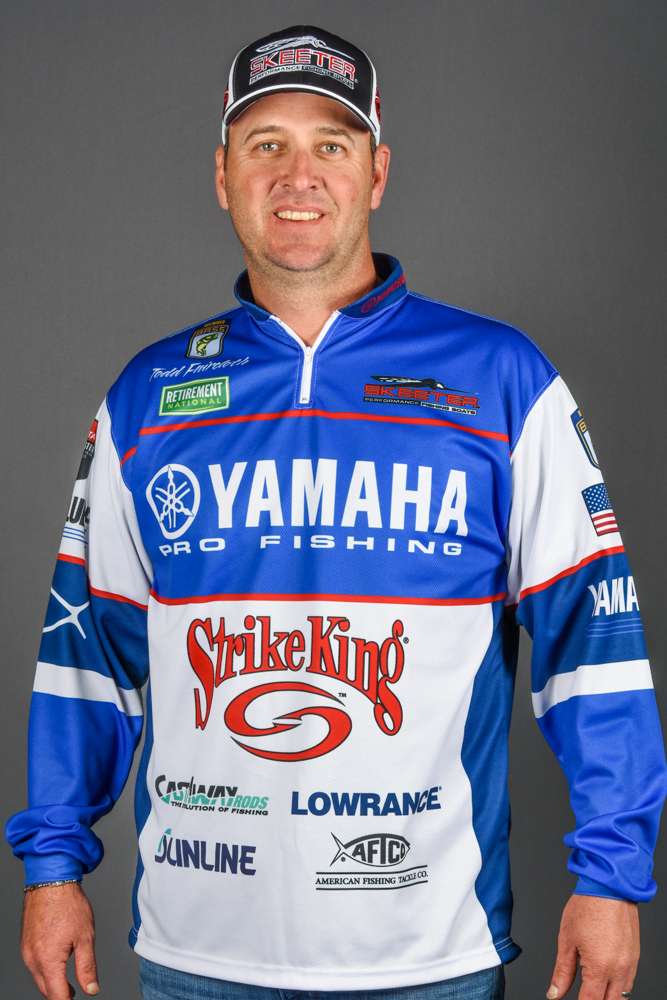
Someone recently told me that I've caught more daily big bass than any other angler in the Bassmaster Elite Series. I was surprised to hear it, but it's a nice confirmation of some of my tournament philosophies. Then they asked me if I'd share some of those ideas with you here, and I agreed. I think it's important to share that kind of stuff. I've benefitted from things that other anglers have shared with me, and I like to give back when I can. It makes us all better.
I hope these tips will help you catch bigger bass in competition. They've worked for me over the years.
1. Find your comfort zone
For every tournament I fish, I do a lot of research. Not only do I want to figure out the best locations, baits and patterns, but I want to develop an idea of what it's going to take to do well and earn a check.
Sometimes you'll hear a tournament fisherman say something like, "I just go out there and fish hard all day and bring my best five to the scales." Well, that's fine, but without any way to measure performance throughout the day, you're fishing blind and can't make the kind of adjustments that are necessary to be successful. You can't afford to wait until you get to the scales to find out if you had a good day or not.
I always have a weight in mind before I launch my boat each day.
That number might be big (Falcon Lake in March) or it might be small (the Ohio River in July), but it's important. It's the number I have to reach to be competitive and to get paid. And while some people will tell you that they only fish to win or that they never fish for a check, the reality is that checks and tournament points are important. They pay the bills and get you to the championship. If you ignore them, you'll have problems.
For the sake of this article, let's say my target number is 12 pounds for a five bass limit. I have confidence that 12 pounds a day will get me in the money and keep me competitive. Hopefully, in practice I've found the bass to do that, and I can catch them pretty quickly. Time is critical in a bass tournament. We're all fishing under the gun, and the guys who manage their time best tend to cash the most checks.
Once I reach that target weight, my comfort level goes up and I'm ready to explore and try something different. Until then, I'm doing all I can just to catch the quality fish I need to get there. I want lots of bites from respectable bass until I reach that target.
My tournament mindset has always been to go for a limit first and to upgrade later. If I know where I can go and catch lots of 2 1/2 pounders quickly, I'll do that rather than go to another spot where the bass are bigger but the bites are fewer and farther between.
Of course, that plan has to be flexible, too, and there are times when I'll go after big fish first and then work on a limit. An obvious time to do this is in the spring, when you've spotted a giant female or two on beds and you have to go to them right away before someone else does. Ordinarily, though, I'm focused on a limit first.
When I have what I believe to be a respectable limit, I'm ready for the second step.
2. Explore
Changing things up and getting away from my primary pattern is more than just changing locations; it's also about changing my mindset.
Instead of wanting and needing lots of bites to fill my limit, now I'm thinking about getting a couple of bites from the kind of bass that will really help my bottom line. I'm not looking to cull up an ounce or two, but by several pounds.
Over the years I've caught most of my best bass from isolated cover, and that's usually where I'll go after I have a solid limit. The cover doesn't have to be big, but it does need to be away from other similar cover.
I like to target isolated logs, boat docks, brush piles, mats of vegetation or anything else that might hold a big fish. The isolated cover is a big fish magnet because it's the only holding area around and other anglers will often overlook it, preferring to fish bigger spots that might hold more bass but which take a lot longer to fish and generally don't hold the biggest bass in the area.
Once I have a solid limit I may also consider making a long run to get to an out of the way spot or making another change that's otherwise too time-consuming or risky. Having a solid limit is freedom — you can do other things that have the potential for a big payoff.
A lot of guys will make those kinds of moves after they've had a bad first day or two in the tournament, but then it's almost always too late. You need to make those moves when you're in a position of strength and have the right mindset, not when you're in a position of weakness and pressing too hard.
3. Ounce wise, pound foolish
Over the years, I've seen a lot of tournament fishermen really milk a spot. Maybe they're catching a bunch of two pounders on a main lake point and they have 10 or 11 pounds in the livewell. Instead of leaving those fish and going to look for a kicker that will really help them, they stay on the spot and continue to work it over, adding an ounce here and there but basically adding very little weight to their bag.
I think that's a mistake for two reasons.
First, that time could be used to make a real change in their catch. If they gamble just a little and try targeting some better fish, they could go from merely making a check to winning the tournament. You don't often do that by playing it safe with average fish.
Second, they might need those fish tomorrow. By catching too many today, they could be wrecking that spot or school for the rest of the tournament. They should be saving those bass. By culling all day with more average fish they think they're gaining ounces but they're really losing pounds from their catch over the next day or two.
I'll be the first to admit that my method of upgrading a tournament catch doesn't always work, but neither does anything else. What I can tell you is that it's worked for me a lot more often than not, and that I'll be using it until I find something better. Of course, a little luck helps, too!
"Hero or zero" is a popular phrase for the guys who gamble with their tournament strategy. It doesn't have to be that way. I much prefer "hero or still-in-the-money."
Give it a try.





